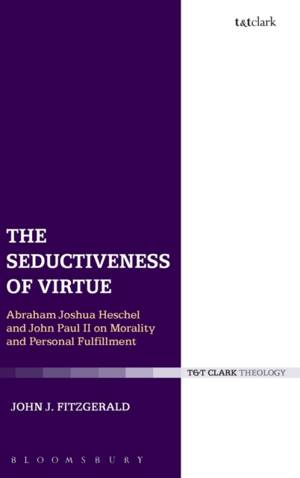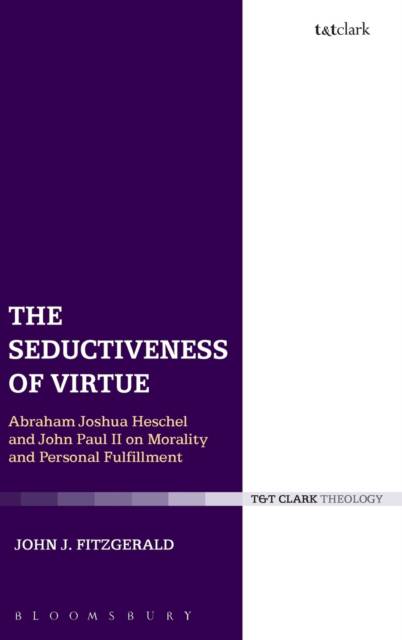
- Afhalen na 1 uur in een winkel met voorraad
- Gratis thuislevering in België vanaf € 30
- Ruim aanbod met 7 miljoen producten
- Afhalen na 1 uur in een winkel met voorraad
- Gratis thuislevering in België vanaf € 30
- Ruim aanbod met 7 miljoen producten
Zoeken
The Seductiveness of Virtue
Abraham Joshua Heschel and John Paul II on Morality and Personal Fulfillment
John J Fitzgerald
Hardcover | Engels
€ 322,45
+ 644 punten
Uitvoering
Omschrijving
John J. Fitzgerald addresses here one of life's enduring questions - how to achieve personal fulfillment and more specifically whether we can do so through ethical conduct. He focuses on two significant twentieth-century theologians - Rabbi Abraham Joshua Heschel and Pope John Paul II - seeing both as fitting dialogue partners, given the former's influence on the Second Vatican Council's deliberations on the Jews, and the latter's groundbreaking overtures to the Jews in the wake of his experiences in Poland before and during World War II.
Fitzgerald demonstrates that Heschel and John Paul II both suggest that doing good generally leads us to growth in various components of personal fulfillment, such as happiness, meaning in life, and freedom from selfish desires. There are, however, some key differences between the two theologians - John Paul II emphasizes more strongly the relationship between acting well and attaining eternal life, whereas Heschel wrestles more openly with the possibility that religious commitment ultimately involves anxiety and sadness. By examining historical and contemporary analyses, including the work of the Fourteenth Dalai Lama, the philosopher Peter Singer, and some present-day psychologists, Fitzgerald builds a narrative that shows the promise and limits of Heschel's and John Paul II's views.Specificaties
Betrokkenen
- Auteur(s):
- Uitgeverij:
Inhoud
- Aantal bladzijden:
- 224
- Taal:
- Engels
Eigenschappen
- Productcode (EAN):
- 9780567657008
- Verschijningsdatum:
- 15/12/2016
- Uitvoering:
- Hardcover
- Formaat:
- Genaaid
- Afmetingen:
- 147 mm x 218 mm
- Gewicht:
- 362 g

Alleen bij Standaard Boekhandel
+ 644 punten op je klantenkaart van Standaard Boekhandel
Beoordelingen
We publiceren alleen reviews die voldoen aan de voorwaarden voor reviews. Bekijk onze voorwaarden voor reviews.







